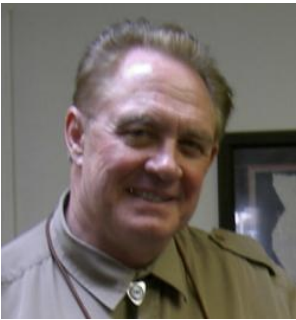The ABIP – Can It Be Saved? Part 1 – Genesis of a Good Idea

[January 2019] The Alternative Broadcast Inspection Program (ABIP) has issued thousands of certificates of compliance to stations voluntarily being inspected. Yet, the big question is “are the certificates worth anything, or has the program ceased to accomplish its purposes?”
Ken Benner was there at the beginning of the program; here he recalls the history, the challenges, and the benefits.
For me, it all began in the Fall of 1994 in the office of the Minnesota Broadcasters Association.
This was a period when the lobbyists for the broadcast industry were crying loudly about the need for deregulation. “We gotta get the government off our backs; all these regulations are killing us with fines, fees and forfeitures” was the war cry.
Deregulation
Congress sympathized with the lobbyists and insisted on FCC cooperation. Soon eliminated were a number of requirements that over the years had greatly benefited the radio and television listeners and viewers.
Among the items eliminated during this period were most caps on how many stations a company could own, any required licensing of qualified broadcast engineers to responsibly oversee the proper transmission operation, the annual Equipment Performance Measurements, and, for good measure, the maximal commercial limit per broadcast hour was eliminated.
Joy
Broadcasters quickly jumped on these and other changes, and The Age of Consolidation began.
Stations rapidly reduced the presence of engineers, reasoning they would save a lot of money, calling in technicians only if they went off the air. More and longer commercials hit the air – infomercials now could run 30 minutes, or much longer.
These changes did not bode well for the technical side of the industry, as many no longer concerned themselves with over-modulation, noise, distortion, poor frequency response, mistuned directional antennas, etc. Often costly results resulted from technical miss-steps by inept engineers hired to save employment costs.
Indeed, many will agree broadcast quality has since suffered greatly as a result.
There is an Inspector Here
This situation prompted the FCC Field Agents to rev up their enforcement visits.
In time, many stations began to feel the sting of citations and expensive fines for misconducts related to improper power output, tower painting, excessive bandwidth splatter, missing Public Information File items, etc.
To moderate the growing concern that an FCC inspection could become a major expense, state broadcaster organizations advised their members to use their free-to-members legal hotline, for which they maintained a well-paid lawyer on retainer to answer many questions and to offer more involved assistance for a nominal price.
Nevertheless, for many licensees staring at costs starting typically at $600 per hour, it appeared the free legal hotline was about the same as a “Free Download” on the Internet.
Self-Inspection As A Defense
Finally, the FCC began to hear the complaints from the field. Staff thought it might be a good idea to have some sort of self-inspection program to help stations avoid expensive citations.
This prompted one of the FCC Field Agents, Ron Ramage in the Kansas City office, to author an excellent series of official FCC Checklists, each addressing the separate broadcast operations i.e. AM, FM, TV, LP etc.
The FCC then adopted a Policy that, at the same time, reduced inspections by the Field Agents and permitted setting up an alternative inspection program (ABIP) – where stations that passed would receive a three-year period where, in most cases, regular FCC inspectors would refrain from visiting the certified station.
The Minnesota Broadcasters Association decided to implement the ABIP, employing their own inspectors to visit stations, complete with their own pad of green sheets for stations passing and a second pad of pink sheets for stations failing their inspections.
The program was touted as one of the most valued services for their members, promoting the inspections as a ticket out of jail. (A fee was charged – termed “insurance.”) In most cases, stations failing an inspection would get a second chance re-inspection (for a fee).
By most accounts, the ABIP was a success.
Initial Enthusiasm
Over the years, I and other inspectors inspected thousands of stations, in small to large markets, from major metro areas to isolated rural areas reachable only by air.
As a result most of those stations were either found to have met the requirements stated in the Checklists or were helped to do so.
For example, my inspections over more than 20 years have primarily focused on education with an inspection report clearly defining a full understanding of the station’s level of compliance, including, items needing additional attention.
Oops, You Failed!
What happened if the station did not “pass” the inspection?
Obviously, if it had been a real FCC inspection, an NOV (Notice of Violation) and a fine would follow. But here is where the ABIP especially proved to be a real blessing for many broadcasters.
If a station failed to pass inspection for some reason – perhaps the directional antenna was not working properly, or there was a clear need for a renewal of the paint on the tower – the ABIP generally allowed for a re-inspection or, if the distance was too great, allow the station to submit an affidavit that they corrected the problem.
Most stations cooperated well with this and most shortcomings were dealt with promptly.
In those 20 years that I have conducted inspections with my methods in good faith, I have never once had the FCC challenge in the least any of my inspection certifications.
Issues Arise
A few years into the program, I noticed that certain stations were regularly asking for the ABIP inspection, passing, and proudly displaying the ABIP certificate. At the same time, there were many others, especially in the smaller markets, which were not taking advantage of the program.
I wanted to know why.
The results of my investigation were surprising.
We will discuss that in Part 2 on this topic.
– – –
Ken Benner has served broadcasters for over 60 years and is currently an independent Alternative FCC Broadcast Inspector with the ABIP in several states.
Ken’s email is: Bennerassociates@me.com
